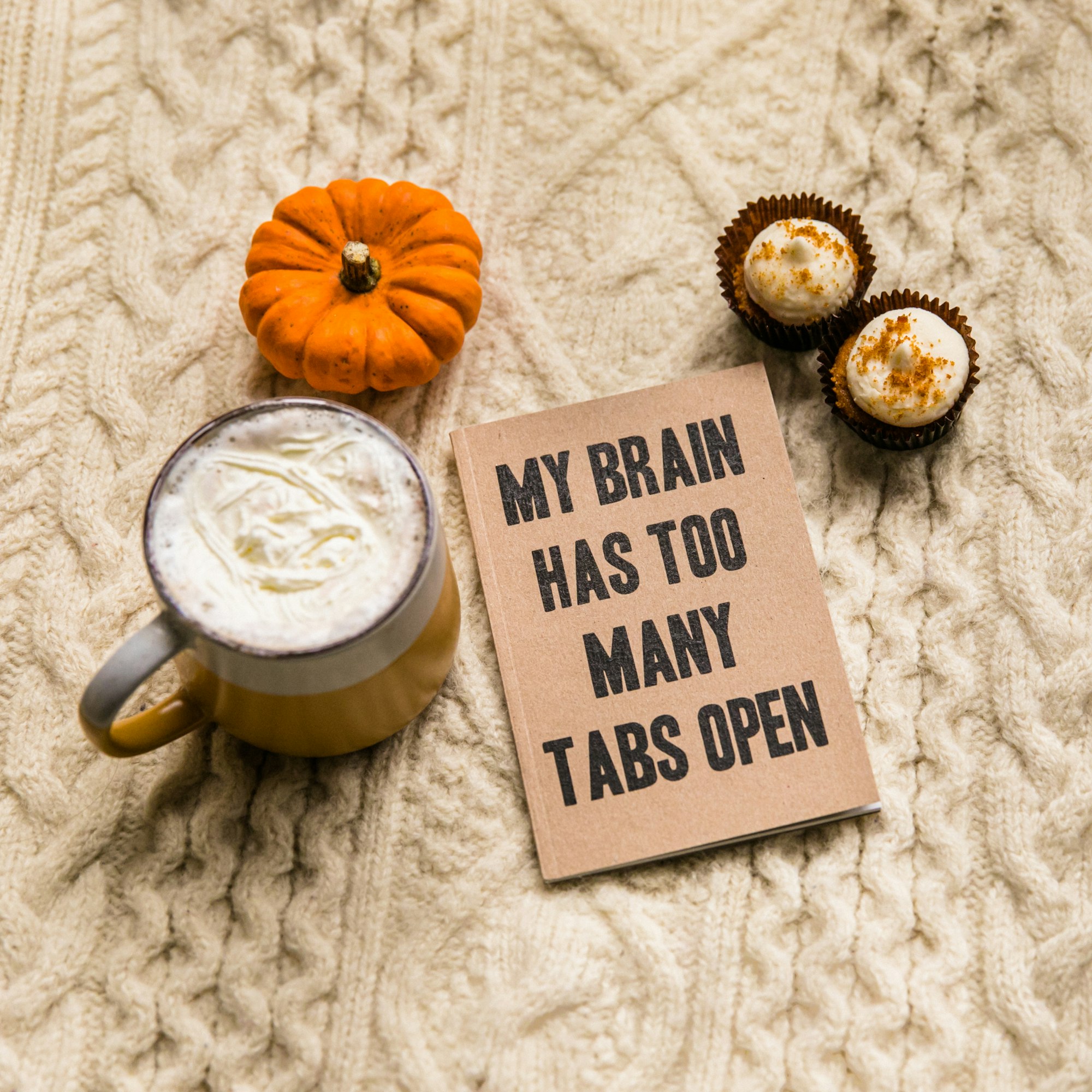How to Reverse Memory Loss from Stress?

Introduction to Reversing Memory Loss from Stress
Stress affects us all in different ways. It is a natural response when faced with challenging situations, but it can take its toll in many forms. One of the most common issues associated with stress is memory loss; the inability to recall information or events clearly due to an overwhelmed mind and body. This guide will explain what stress-induced memory loss is, how it can be reversed, and provide strategies for avoiding it entirely.
The goal of this post is to provide techniques and guidance that both prevent and reverse stress-induced memory loss. We will discuss various lifestyle changes such as exercise, diet, sleep, and cognitive exercises, as well as brain retraining programs and relaxation techniques. By the end of this post, readers should have a much better understanding of how to cope with stress in order to keep their minds sharp and functioning properly.
What is Stress-Induced Memory Loss?
Stress is a common emotion experienced by people of all ages and backgrounds. It arises in response to a perceived danger or threat and can be triggered by both positive and negative events. At its core, stress is the body’s way of preparing itself for action. In short-term situations, it can help us stay alert and ready to take action, but when it persists for too long, it can have an incredibly detrimental effect on our mental and physical health.
One of the most common side effects of long-term stress is memory loss, also known as stress-induced memory loss. This occurs when the brain has been exposed to prolonged stress, which can lead to problems with focus, concentration, and ultimately, recalling memories.
The causes of stress-induced memory loss can vary from person to person. In some cases, it could be the result of a traumatic event that causes the brain to shut down. Other times, it could be the result of constant worrying and ruminating. Whatever the cause, the resulting memory loss can make it difficult to remember past experiences, retain new information, or focus on tasks at hand.
If left untreated, stress-induced memory loss can become a serious problem, leading to anxiety, depression, and other mental health issues. Additionally, it can affect a person’s ability to perform at work or school, as well as their relationships with family and friends. Fortunately, there are a number of strategies available to help prevent and reverse this type of memory loss.
General Strategies for Staying Stress-Free
Stress can take a major toll on your mental and physical health, and it can often lead to memory loss. Learning how to stay organized, manage your time, and reduce stress levels is essential for protecting your cognitive abilities.
One of the most important ways to combat stress is to create a plan for your day, week, or even month. Making a list of tasks helps to take the pressure off, providing a sense of accomplishment when items are checked off. Having an organized plan and schedule helps to decrease stress because it makes you feel like you are in control.
An effective way to manage stress levels is to practice mindful and intentional living. When going about your daily tasks, make sure to stay focused on the present moment. Take time each day to be conscious of your current experience – such as what you’re doing, who you’re with, and how you’re feeling - without getting caught up in worries about the past or future. This can help bring a sense of peace and tranquility to your life that will aid in reducing stress.
Time management is also key to keeping your stress levels low. Make sure to plan ahead and allow yourself enough time to complete tasks so that you won’t end up feeling overwhelmed. It’s also important to be realistic about the amount of time you need for projects and to schedule breaks throughout the day to avoid burnout.
Finally, it’s important to take the time to check in with yourself frequently. Make sure to carve out time every day for yourself, whether that means scheduling time to go for a walk or just taking a few minutes to relax and meditate. Connecting with yourself and your own needs is necessary for keeping stress levels in check.
The Role of Exercise
Exercise is an important part of any healthy lifestyle. It helps to keep our bodies fit, and it can also help to reduce stress levels and improve mental health. Regular physical activity releases endorphins, which are hormones that promote feelings of happiness and contentment. In addition, exercise can help to take our minds off of stressful situations and concentrate on something more enjoyable.
When it comes to reversing memory loss from stress, exercise is key. Physical activity can reduce cortisol levels, a hormone released in response to stress. Too much cortisol in the body can interfere with the normal functioning of the nervous system and impair cognitive functions such as thinking and memory. By reducing cortisol levels, exercise can help to protect against memory loss caused by stress.
The type of exercise you do does not necessarily matter, but it is important to aim for 30 minutes of moderate intensity physical activity every day. This can include activities such as walking, swimming, cycling, and playing sports. You may find it beneficial to try different kinds of exercise to find one that you enjoy.
Dietary Considerations for Reducing Stress-Induced Memory Loss
Good nutrition is essential for overall health and wellbeing, and it plays a particularly important role in managing stress. Eating a balanced diet of healthy foods helps to maintain physical and mental energy and can help reduce the negative feelings associated with stress.
The key is to eat nutrient-rich foods that provide your body with the energy and nutrients it needs without straining your digestive system. This includes whole-grain breads and cereals, fresh fruits and vegetables, lean proteins such as chicken or fish, low-fat dairy products, and healthy fats such as olive oil.
It is also important to limit your intake of processed foods, refined grains, sugary foods, caffeine, and alcohol. These foods tend to be higher in calories and contain fewer nutrients. They can also trigger an emotional response, which can lead to stress.
In addition, you should aim to eat smaller, more frequent meals throughout the day instead of three large ones. This will help keep your energy levels steady and avoid overeating. Lastly, make sure to drink plenty of water to help flush out toxins and keep your body hydrated.
The Role of Sleep
Getting enough sleep is necessary for our bodies to function properly. We often underestimate the importance it has on our day-to-day lives, but not getting enough sleep can have serious consequences. Not only does it affect our mood and energy levels, but a lack of sleep can also result in increased stress levels.
When we’re stressed, our bodies produce hormones called cortisol and adrenaline, which can interfere with our ability to get a restful night’s sleep. Without enough sleep, our brains don’t have enough time to process information, and our memory may suffer as a result. So, getting regular and quality sleep is essential for keeping our stress levels low and our minds sharp.
In order to ensure that you’re getting a good night’s sleep, it’s important to establish a regular sleep schedule. Going to bed and waking up at the same time each day will help your body regulate its circadian rhythm. It’s also important to avoid caffeine and other stimulants late in the day, and to limit screen time before bed. Other helpful tips include avoiding large meals or heavy exercise close to bedtime, and keeping your bedroom dark and cool.
Getting regular sleep is essential for reducing stress and improving your memory. By establishing a healthy sleep routine and avoiding distractions before bedtime, you can give your body the rest it needs so that you can tackle the day feeling refreshed and alert.
Cognitive Exercises
Engaging in cognitive exercises can help to reduce stress levels and maintain healthy memory function. Crosswords, puzzles, and other mind games are popular activities for exercising the brain because they offer an enjoyable and engaging way to stimulate the brain. Even a few minutes per day can help you reap the benefits of cognitive exercise.
Cognitive exercise helps the brain to remain flexible and sharp. It also helps to improve problem-solving skills, focus attention, and remember information that would otherwise be forgotten or confused. Additionally, it can help to improve creativity and reduce stress.
Crosswords are a great way to exercise your brain because they require you to use different parts of the brain to identify words and clues related to them. Puzzles can also help to challenge the brain and sharpen problem-solving skills. Other mind games such as word searches and number games can also help keep the brain active and alert.
It is important to note that engaging in cognitive exercise only serves as a preventative measure against memory loss caused by stress. If you have already experienced memory issues due to stress, then it is necessary to seek professional medical help in order to properly diagnose and treat the issue.
Brain Retraining
Brain retraining is an effective way to combat stress-induced memory loss. There are many mind-training apps, websites, and online resources available that can help refocus the brain and reduce stress levels. These tools use techniques such as guided meditation, cognitive-behavioral therapy, and mindfulness practices to target memory improvement and lower stress.
Mind training apps such as Luminosity, Elevate, and Peak, provide users with engaging games designed to stimulate cognitive functioning and help maintain mental agility. Cognitive-behavioral therapy (CBT) involves methods such as talk therapy and relaxation strategies to address the thoughts and beliefs that contribute to stress and anxiety. Mindfulness meditation practices can also help with stress reduction, which in turn can lead to improved memory.
Brain retraining does not have to be a complicated process. Even taking a few minutes each day to practice mindful breathing exercises or playing a mental game on an app can help. Ultimately, by focusing on actively retraining our brains and managing our stress levels, we can help improve our memories and avoid slipping into memory loss.
Meditations and Relaxation Techniques
In order to reduce stress and improve memory, it is important to incorporate relaxation activities into your daily routine. Examples of relaxation activities include yoga, breathing exercises, and mindfulness meditation. These activities have been linked to decreased stress levels and improved cognitive performance.
Yoga is an ancient practice that combines physical postures and mindful breathing. When practiced regularly, yoga can help to reduce stress by quieting the mind and promoting relaxation. Regular practitioners of yoga report improved focus and memory recall.
Breathing exercises and meditation are other important tools for reducing stress. Focused breathing techniques can help to clear your mind and relax the body. Mindfulness meditation is a practice of focusing on the present moment and being aware of your thoughts and feelings without judgment. Studies have found that regular mindfulness meditation can lead to lower levels of stress and improved cognitive performance.
Finally, guided imagery is another helpful relaxation technique. Guided imagery involves creating mental images of relaxing and calming scenarios to reduce stress and increase mental clarity. Combining all of these relaxation activities into a daily practice can be highly beneficial in reducing stress and improving your memory.
Conclusion
The evidence is clear that stress can have a significant effect on memory and concentration, leading to memory loss. This post provided a comprehensive overview of available strategies to prevent and potentially reverse stress-related memory loss.
First, we discussed general stress reduction techniques such as staying organized, managing your time, and engaging in regular physical activity. We then went into detail regarding dietary considerations for maintaining good cognitive health, the importance of getting quality sleep, and various cognitive exercises which can stimulate the brain. We also discussed the use of brain-training and relaxation apps, as well as various meditation and relaxation activities, all of which can help reduce stress levels.
In order to prevent and/or reverse stress-induced memory loss, it is essential to prioritize stress reduction. Taking time to incorporate the strategies mentioned above into your daily routine can have an extremely beneficial impact on your mental clarity and long term cognitive health.
Q&A: How to Reverse Memory Loss from Stress
Stress-induced memory loss can be a frustrating issue. It can cause a range of problems including difficulty concentrating, short-term memory issues, and difficulty recalling important facts or events. Fortunately, there are steps you can take to reduce stress levels and promote healthier cognition. In the following Q&A, we discuss some of the most effective ways to reverse memory loss from stress.
Q: What are some strategies to reduce stress levels?
A: Reducing stress levels is key to preventing and reversing memory loss caused by stress. Some helpful strategies to reduce stress levels include:
- Making sure to take breaks during the day.
- Creating a daily routine and sticking to it.
- Making time for relaxation and enjoyable activities.
- Avoiding overstimulation such as watching too much television or playing too many video games.
- Meditating for 20 minutes each day.
Q: What role does exercise play in reducing stress and promoting better cognition?
A: Exercise plays an important role in keeping stress levels low and promoting better cognitive function. Regular physical activity releases endorphins, which help to reduce stress and improve mood. Exercise also increases blood flow to the brain, which improves mental clarity and focus. Aim for 30 minutes of exercise at least 3-5 times per week.
Q: Should I consider any dietary changes to help reduce stress and improve my memory?
A: Yes, dietary changes can have a positive impact on stress levels and memory. Eating a balanced diet that is rich in vitamins, minerals, and other nutrients is essential for maintaining good physical and mental health. Aim to consume a variety of whole, unprocessed foods such as fruits, vegetables, lean proteins, and healthy fats. Also, try to limit or avoid foods that may increase stress levels such as caffeine and processed, sugary foods.
You might also like this article:








